
13 Q
10th
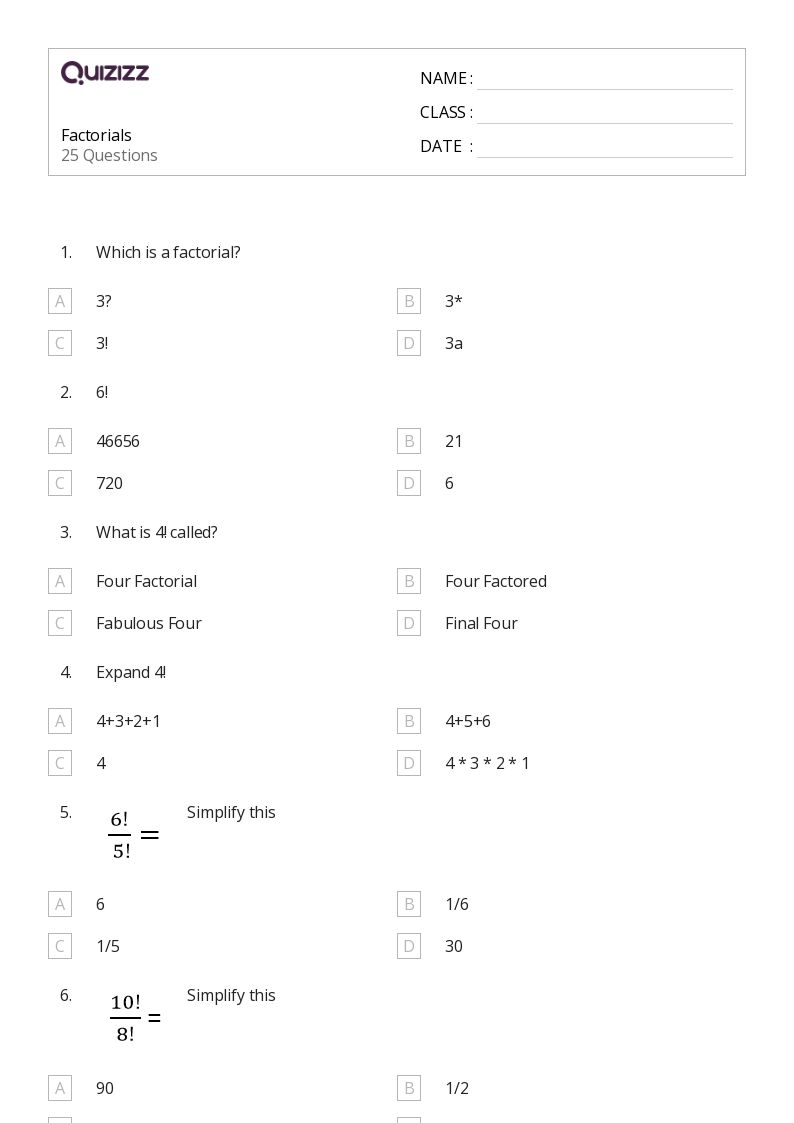
25 Q
11th - 12th
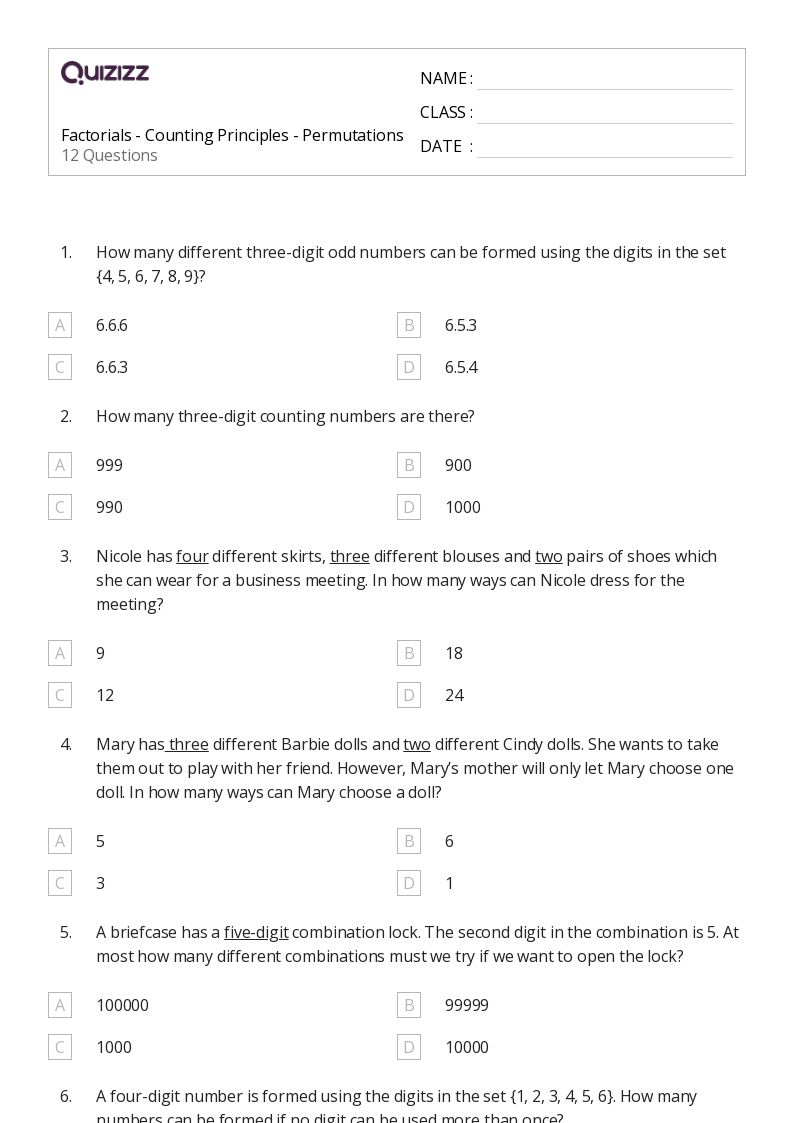
12 Q
8th - 12th

25 Q
9th - 12th

15 Q
11th

10 Q
9th - 12th

10 Q
11th

14 Q
9th - 11th

22 Q
9th - 12th
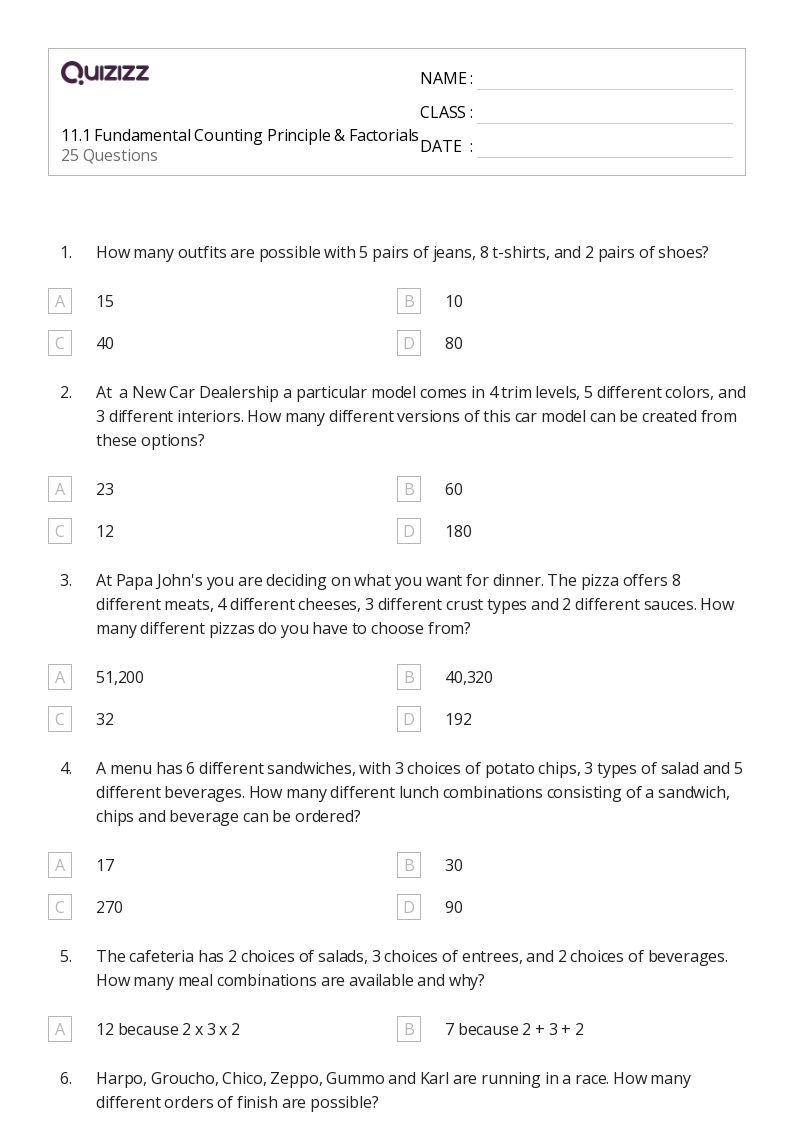
25 Q
9th - 12th
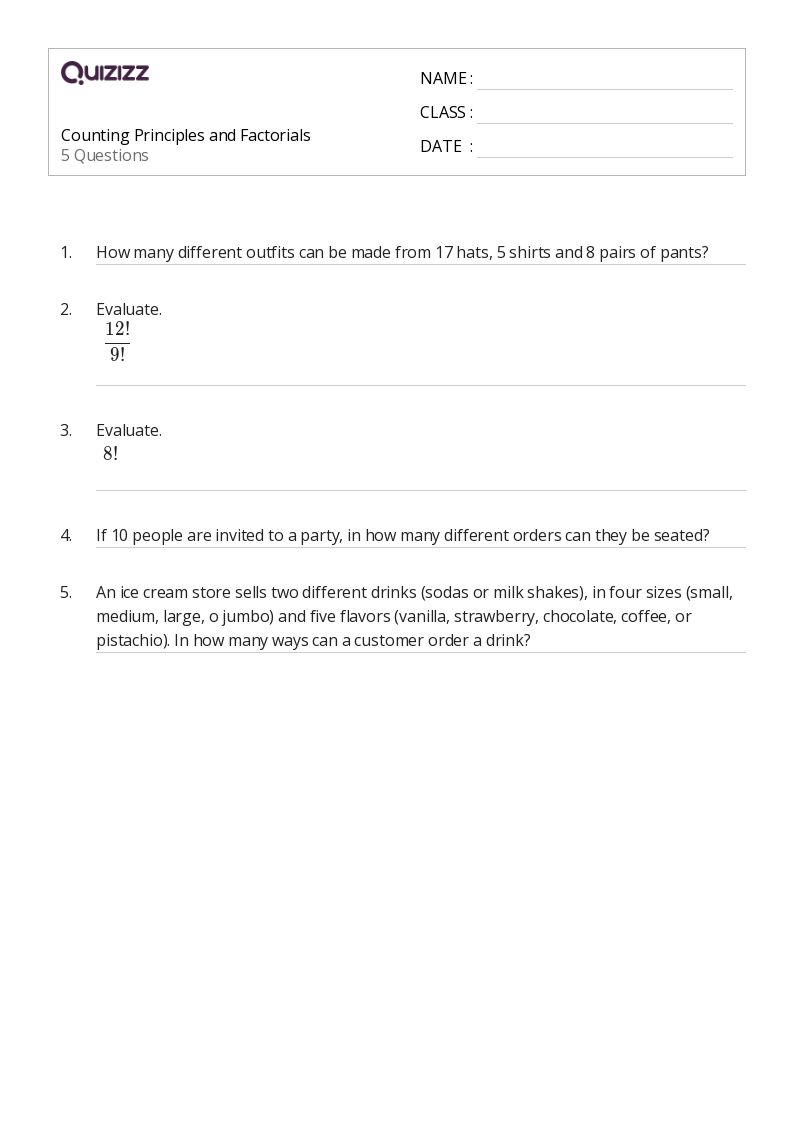
5 Q
11th

20 Q
9th - 12th

17 Q
9th - 12th

12 Q
11th
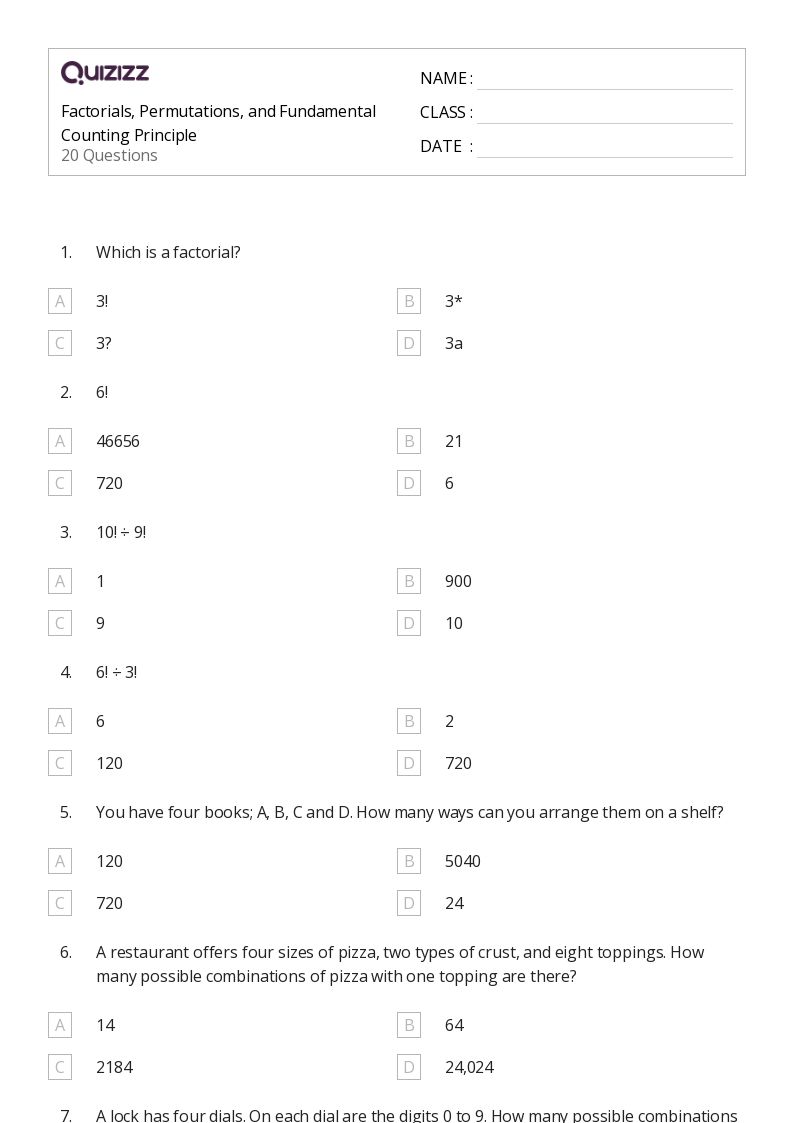
20 Q
9th - 12th

12 Q
9th - 12th

15 Q
11th

22 Q
9th - 12th

10 Q
10th

20 Q
9th - 12th
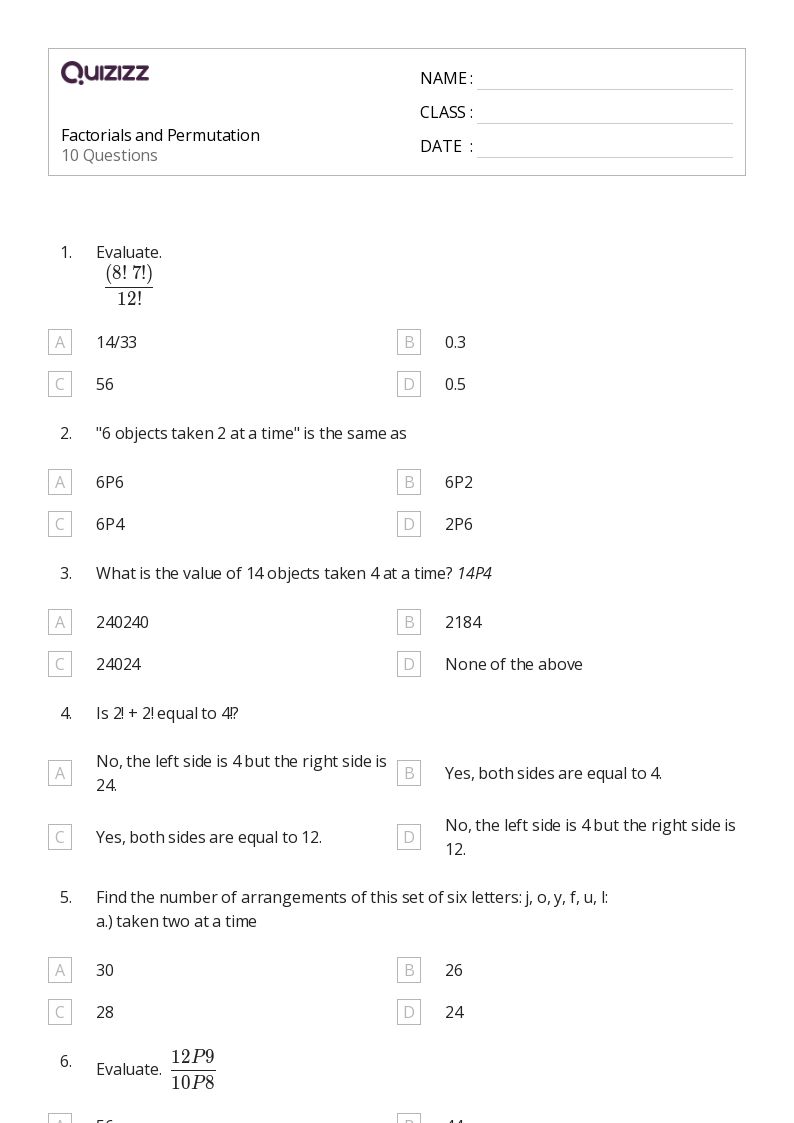
10 Q
10th

10 Q
9th - 12th

14 Q
9th - 12th

15 Q
11th - 12th
Explore Worksheets by Subjects
Browse resources by Grade
Browse resources by Subject
Explore printable factorials worksheets
Factorials worksheets are an essential tool for teachers to help students grasp the fundamental concepts of Math, particularly in the areas of probability and statistics. These worksheets provide a structured and engaging way for students to practice calculating factorials, which are crucial for understanding permutations and combinations. With a variety of exercises and problems, factorials worksheets cater to different learning styles and abilities, ensuring that all students can master this important skill. Teachers can use these worksheets as part of their lesson plans, homework assignments, or even as supplementary material for students who need extra practice. By incorporating factorials worksheets into their curriculum, teachers can ensure that their students build a strong foundation in Math, and are well-prepared for more advanced topics in probability and statistics.
Quizizz is an innovative platform that offers a wide range of resources for teachers, including factorials worksheets and other Math-related materials. With Quizizz, teachers can create interactive quizzes and games to reinforce the concepts taught in class, making learning fun and engaging for students. The platform also provides detailed analytics and reports, allowing teachers to track their students' progress and identify areas where they may need additional support. In addition to factorials worksheets, Quizizz offers resources covering various topics in probability and statistics, ensuring that teachers have access to a comprehensive suite of materials to help their students succeed in Math. By incorporating Quizizz into their teaching strategies, educators can create a dynamic and interactive learning environment that fosters a deep understanding of mathematical concepts and prepares students for success in higher-level courses.
